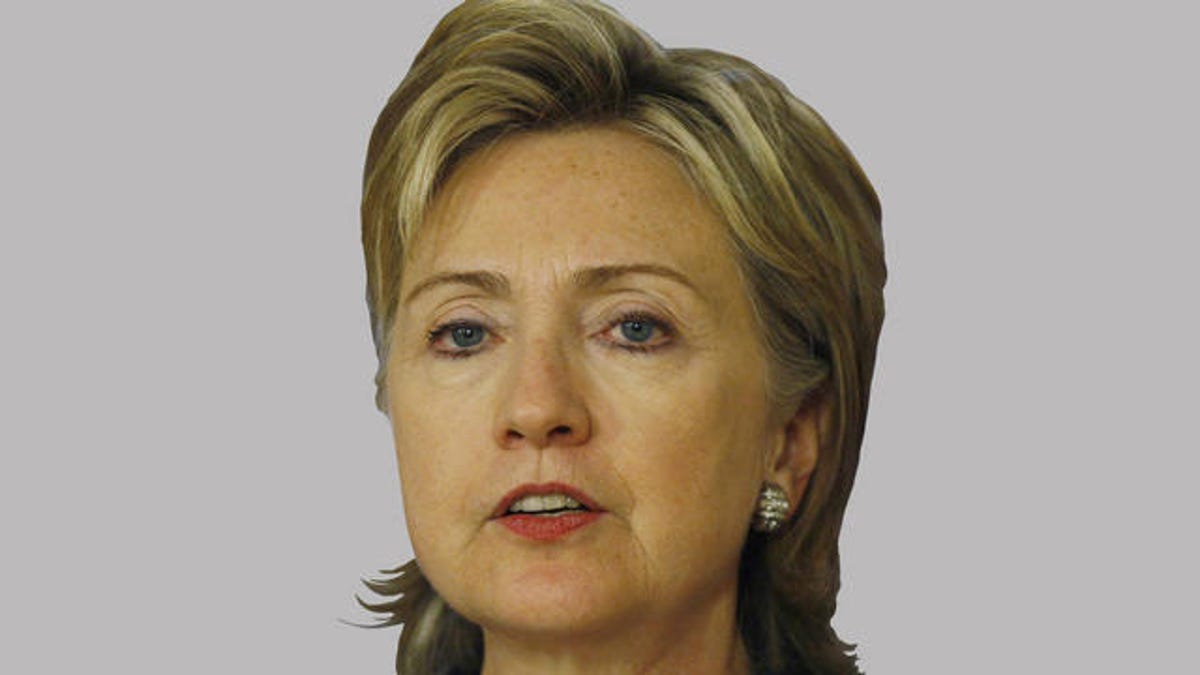
AP
Remember those bumper stickers informing us that “dissent is the highest form of patriotism”? According to Hillary Clinton, that is only true when a Republican occupies the White House. At least that is the implication of an exchange our Secretary of State had with a senator during testimony on Capitol Hill last week. As Mrs. Clinton departs this week for Latin America to kibbutz primarily with leftist governments, she has expressed her view that the minority party’s lack of eagerness for President Obama’s domestic agenda is problematic.
The exchange began when Senator Arlen Specter (D-Penn.) leadingly asked if the president has lost “stature and power” abroad due to his inability to get major legislation passed by Congress. Mrs. Clinton responded that “there is certainly a perception that I encounter in representing our country around the world that supports your characterization.” She also said: “People don’t understand the way our system operates. They just don’t get it… [I]t does color whether the United States is in a position…to demonstrate the kind of unity and strength and effectiveness that I think we have to in this very complex and dangerous world.”
If the foreign leaders with whom Mrs. Clinton interacts “don’t get” how the U.S. government works—even though our government is the most closely observed and analyzed of any in the world—then it is incumbent on our chief diplomat to provide an explanation rather than bemoan deliberative democracy. There are many governments around the world that could benefit from adopting our government’s checks and balances. Furthermore, there is no evidence that “unity” around a president’s domestic agenda affects his power abroad. For example, Congress’s refusal to pass our last president’s Social Security reforms did not weaken him abroad or encourage our enemies.
Secretary Clinton herself seemed to see little wrong with selectively opposing a president – at least before last year, and even went much further than measured opposition to domestic initiatives. In August of 2007, just as the Iraq surge was defeating the insurgency there, she characterized it as a “failure” and called for unilaterally subverting America’s chief partner and the elected head of government in Iraq, Prime Minister Nouri al-Maliki. Earlier in the year, she characterized the dispatch of more forces as “sending them to Iraq on a mission that I think has a very limited, if any, chance for success.” By sounding a defeatist tone, this, unlike opposition to domestic policy, actually posed a risk of undermining then-President George W. Bush and encouraging our foreign opponents.
But there were still more oddities in last week’s exchange. Mrs. Clinton spoke of the difficulties she has faced abroad “as we sell democracy.” This will undoubtedly come as a surprise to the people actually seeking democracy overseas, who believe the Obama administration has done virtually nothing to promote democracy and human rights abroad. Latin America’s democracy advocates have had it particularly bad, especially in Honduras where the Obama administration sided with a leftist who was ousted through constitutional means when he attempted to retain power unlawfully.
Mrs. Clinton’s trip to Latin America reinforces her boss’s unprincipled and ineffective approach to the region. While there, she appears set to do everything but “sell democracy.” Instead, Mrs. Clinton will spend most of her time with leaders of governments allied with Venezuelan strongman Hugo Chavez, who has been uniquely adept at undermining democratic institutions and nationalizing private property.
On her first stop in Uruguay, she will join with Chavez and others in celebrating the inauguration of a left-wing former guerrilla as president. She will court Brazil’s leftist president for support on Iran sanctions at the UN that almost certainly will fail. Later, she will meet with Argentina’s president, whom the Obama administration has courted by refusing to object to recent belligerent statements about the Falkland Islands. Even though the U.S. supported Britain in a war to defend the islands in 1982, Mrs. Clinton’s State Department announced last week that it is a matter between Britain and Argentina on which the U.S. makes no judgment. That was seen by analysts in London and elsewhere as another betrayal by the U.S. of one of its closest allies. It undoubtedly was noticed as well in Bogota, which Mrs. Clinton will not be visiting. There, America’s best ally in the region, Alvaro Uribe, presides over a Colombian government that has been a remarkable success story—and a bulwark against Chavez. But like all center-right figures up and down the hemisphere, he is viewed warily in Mr. Obama’s Washington.
What Secretary Clinton might consider is that betraying allies, cozying up to anti-American governments, ignoring democracy advocates and failing to build partnerships with friendly governments are what is causing Mr. Obama to lose “stature and power” around the globe. That foreign policy approach, rather than the measured and loyal opposition of the minority party in Congress, is the problem.
Christian Whiton was a State Department official in the George W. Bush administration from 2003-09. He is a principal at DC Asia Advisory and president of the Hamilton Foundation.
